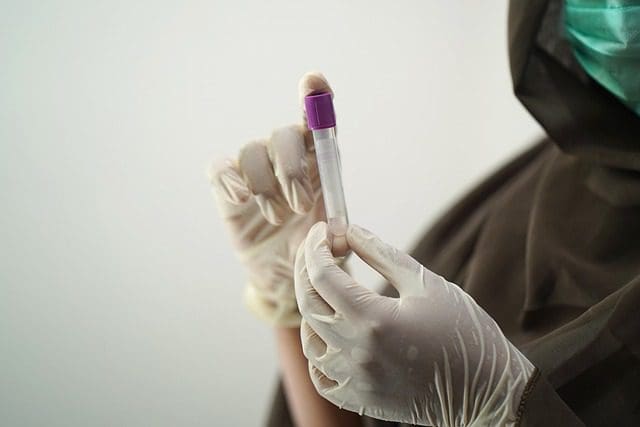There are many methods for diabetes diagnosis, including laboratory tests. While family history is a key factor in determining whether you have the disease, other risk factors include being overweight or obese.
In addition, your doctor may ask you about your symptoms, such as frequent thirst and urination, blurred vision, and irritability. The doctor may also perform a physical examination.
Diabetes is usually diagnosed through blood tests. Those aged 45 and older should visit a healthcare provider to have their blood sugar checked, as this is a very important step in detecting the disease.
People with a high body mass index (BMI) or those with diabetes risk factors should be tested every three years or as indicated. People with risk factors such as obesity, gestational diabetes, or genetics should also be tested on a yearly basis.
Random blood sugar tests can be helpful, as they don’t require fasting or monitoring. Apart from that, you can also go for a fasting blood glucose test or A1C chart to get accurate results.
In this article, we are going to discuss diabetes tests and diagnoses.
What Is Diabetes?
The condition known as diabetes is the result of high blood glucose levels in the blood. This condition can cause a variety of problems to organs and tissues in the body. Some of these problems are potentially life-threatening.
In normal conditions, the pancreas produces and secretes insulin into the blood. This hormone unlocks the cell wall so that glucose can enter the body’s cells. In type diabetes, insulin does not work properly. This results in high levels of blood sugar and can lead to severe complications.
If you’re worried that you may have diabetes, you should visit a doctor. They will conduct different types of blood tests to measure your blood glucose levels. Early detection of diabetes can help you in better management.
Things Your Doctor Will Ask When Diagnosing Diabetes
There are a lot of questions your doctor will ask you when you visit their office, from your symptoms to your family’s medical history. There are also questions about medications you’re taking and allergies you have. A proper diagnosis is the best way to treat your diabetes and improve your overall health.
Your Symptoms
When diagnosing diabetes, your doctor will always start with the symptoms. You need to inform the doctor about your symptoms to get a proper diagnosis. Some common signs and symptoms of diabetes are high thirst, frequent urination, increase in hunger, skin problems, blurry vision, etc.
Family History
Diagnosing diabetes involves performing blood tests and other tests to determine the type of diabetes that you have. However, your doctor will first ask about your family history. Genetic factors play a role in diabetes development. People with a family history of diabetes are more likely to develop the disease. If your parents, brother, or sister have diabetes, you need to inform the same of the doctor.
Medications You’re Taking
When diagnosing diabetes, your doctor will ask you about the medications you take. There are certain medications that can interfere with your blood glucose levels and lead to diabetes-like symptoms. So, make sure you inform the doctor about all the medications you are on.
Allergies
If you have symptoms of diabetes and have a history of allergies, your doctor will ask about them. Your diabetic treatment plan can interfere with your allergies and make them worse, so you need to inform the doctor about the same.
Types of Tests for Diagnosing Diabetes
There are a variety of blood tests to diagnose diabetes. Here are some of the most common tests your doctor will conduct.
A1C
The A1C is a blood test useful to diagnose diabetes. It is considered a primary diagnostic tool. The A1C test measures the glucose content of hemoglobin, the protein that gives blood its red color. This test shows your glycemic activity over a period of three months. It helps the doctor to understand how well your body is processing sugar. If the test result is 6.5% or above, you have diabetes.
Fasting Plasma Glucose
One of the fastest ways to diagnose diabetes is a fasting plasma glucose test. The test measures blood glucose levels and you can conduct it in a healthcare provider’s office or a laboratory. You need to fast for 8 hours and then take a blood test to determine the glucose levels. A blood glucose level of 126 mg/dL or higher is a good indicator of diabetes.
Oral Glucose Tolerance
There are many types of tests to diagnose diabetes, and oral glucose tolerance tests are one of them. These tests are much more accurate than finger prick testing and can help you identify if you have diabetes. During the test, you’ll be given a glucose drink to consume, and your blood glucose level is measured before, during, and after. Test results of 200 mg/dL or above show diabetes.
Random Plasma Glucose Test
If you’re experiencing high blood sugar, a random plasma glucose test is one of the best ways to get a quick diagnosis. This test doesn’t require fasting and is a good choice when diabetes symptoms are developing, and you need immediate treatment. If the result is over 200 mg/dL, it indicates that you have diabetes.
Why Is Early Diabetes Diagnosis Important?
Detecting diabetes at an early stage is crucial for successful management. Earlier diagnosis allows people to make lifestyle changes to slow the progression of the disease.
Undiagnosed diabetes can lead to life-threatening complications. In addition to heart attacks, strokes, and kidney damage, uncontrolled diabetes can damage your body’s organs and tissues. High blood sugar levels can also cause nerve damage, foot ulcers, and peripheral vascular disease.
Early diagnosis of diabetes can significantly improve your chance of managing it. It can help you avoid the complications of diabetes by preventing it from progressing.
About the Author/s
The New Jersey Digest is a new jersey magazine that has chronicled daily life in the Garden State for over 10 years.
